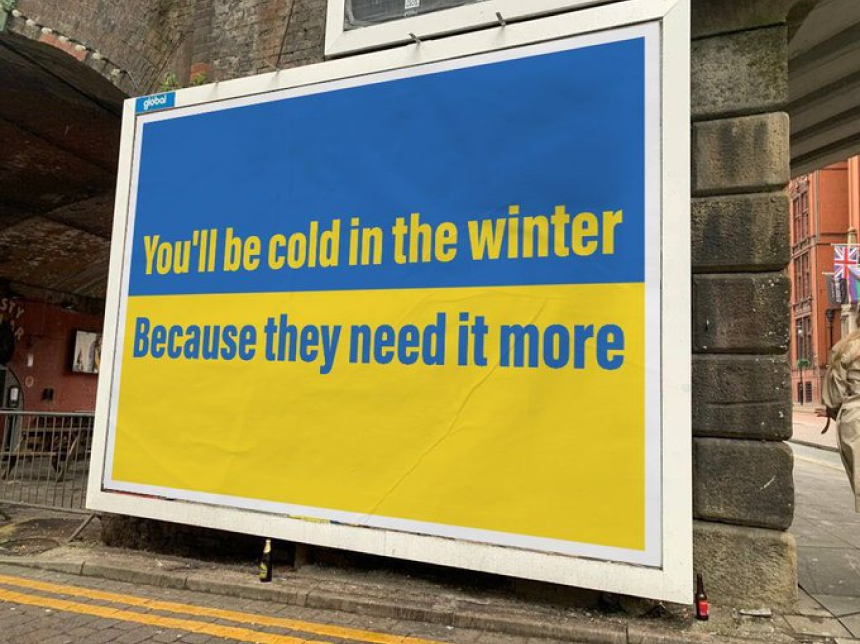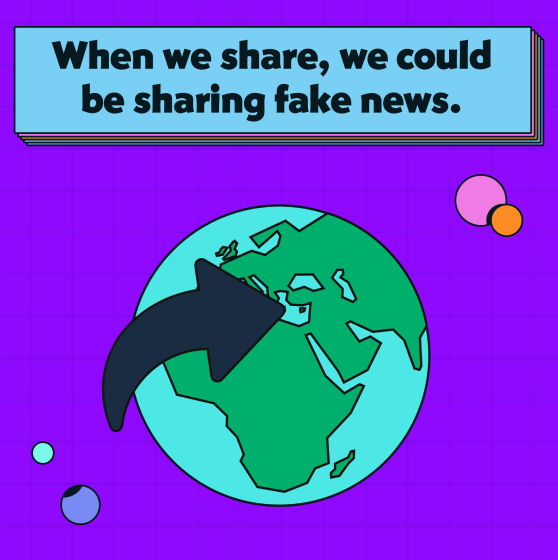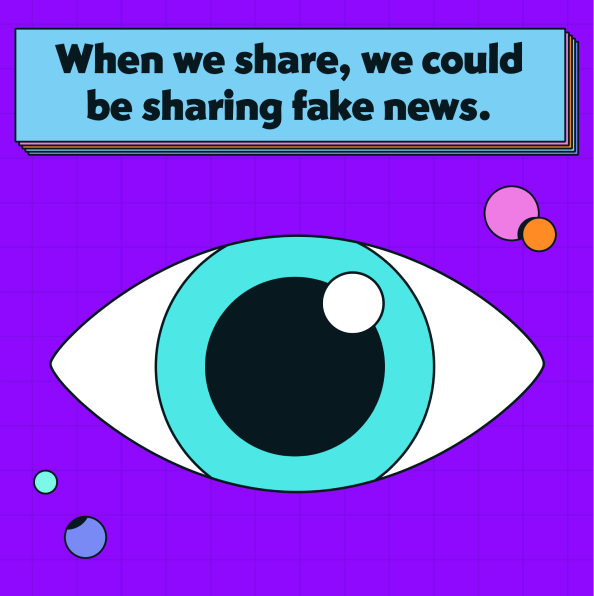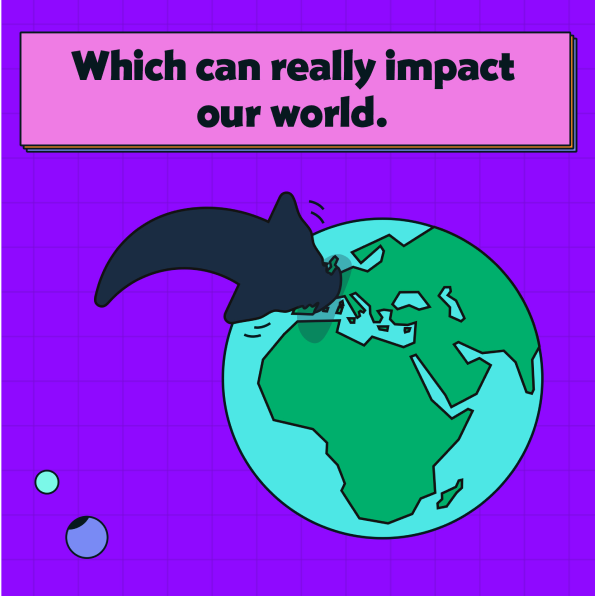
Share Checklist - Think Before
You Share

The internet and social media are full of facts and opinions. Most are balanced and informative but others can be misleading and could actually be fake news. Making them harmful to share with our friends and families.
Definitions
False information online, or ‘fake news’, is often called misinformation or disinformation, but what do these terms actually mean?
Misinformation
Refers to false information that is shared without an intent to mislead.
Disinformation
Refers to false information that is shared with an intent to deceive and mislead. It’s not always easy to spot, but the checklist can help you decide if information can be trusted.
Real life examples
False rumours spreading online, linking 5G to illnesses, resulted in a number of masts being set on fire across the UK. As well as incidents of telecoms engineers being attacked, including someone being stabbed.
Source: The Guardian
Every minute of every day over 1.5 million pieces of content are being shared.
Source: DOMO

Think Before You Share

Watch our short content films below to find out more about how sharing fake news impacts us all.
When we share, we could be sharing fake news. Spreading it around the world in minutes. Which could be dangerous and damaging to millions. Your actions online shape the impact fake news has on us all. Read beyond an article’s headline to help spot fake news. Think before you share.







